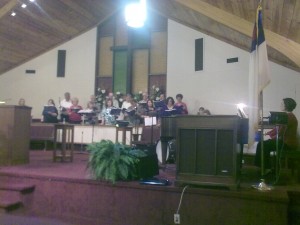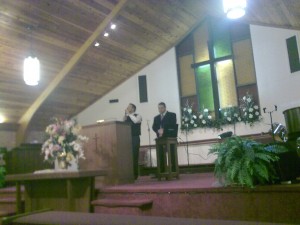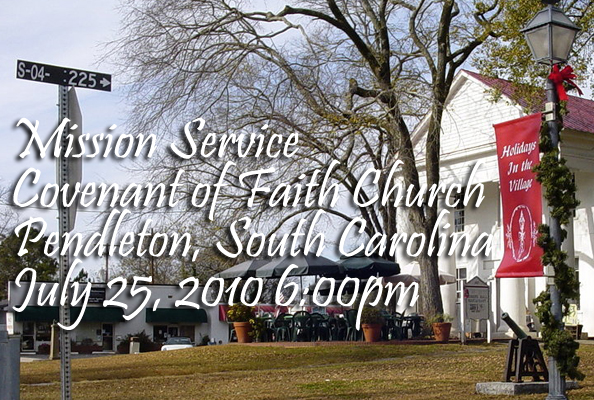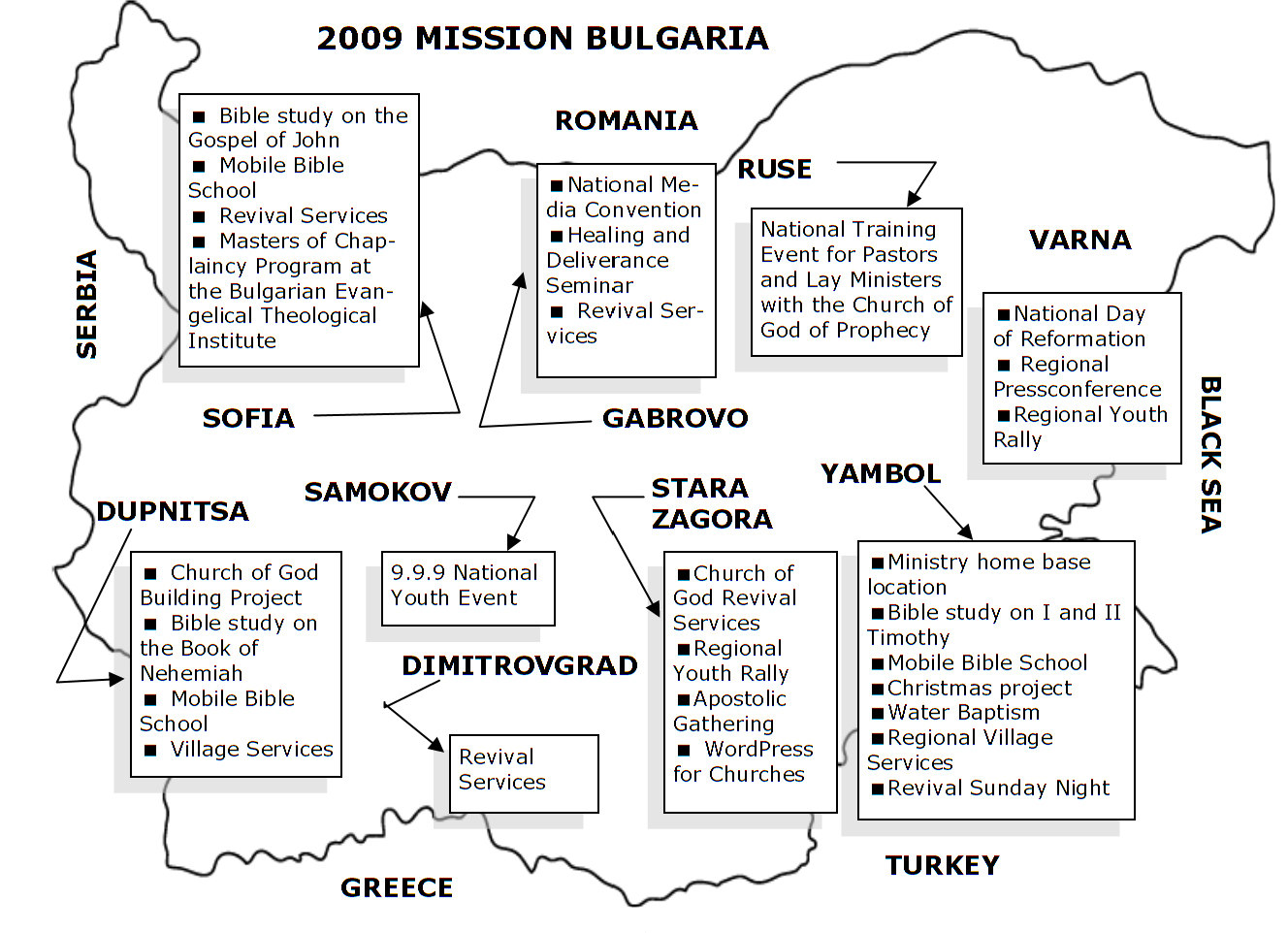Mission of God Study Bible Review
Comments Off on Mission of God Study Bible Review
Several months ago, our team undertook the task of comparing and reviewing a growing number of Study Bibles appearing on the book market recently in what we called a 21st century Revival of Study Bibles. This article is part of our Study Bibles review series as outlined here: https://cupandcross.com/bible-revival/
The Mission of God Study Bible is edited by Ed Stetzer and Philip Nation containing essays and commentaries by over 50 contributors among whom Billy Graham and Jack Hayford. Significant place is given to quotes from Francis Dubose’s 1983 book, God Who Sends. The primary purpose is to introduce a Missional Manifesto to the church of the 21st century. Beside book introductions, essays and cross-reference annotations, it promotes ideas from the Bible as QR Codes, Text Messages and Notes from God using the Holman Christian Standard Bible text as a foundation.
The initial commentary introduces God’s mission in creating the world and the divine plan to reconnect with His creation into a promise of an eternal land. The passages of our usual consideration (Numbers ch.6 and Jeremiah ch.18) are not particularly commented; however, the introduction to Numbers begins with a beautiful analogy of how serious God takes His mission leading the Israelites for 40 years in the wilderness. The notes on Jeremiah also contain Glenn Barth’s Dwelling and Working for God in the City.
Although not written by primarily Pentecostal authors, the commentary on Acts includes a very charismatic key to revival through making disciples using: (1) empowerment, (2) education and (3) evolving. This process is described as inclusive and hospitable to all in two articles on the Gentile conversion in Acts 10. The mission of the Christian ministry is enriched by the Gifts of the Spirit annotated personally by Ed Stetzer in 1 Corinthians 14 through the source, search and sovereignty of spirituality. But it is also inseparable from the marketplace as described in connection with the Corinthian church Acts ch.18.
The Pneumatological and ministry related commentaries connect well with the urgency of musicological eschatology starting with the phrase “In the Spirit” (Revelation 4:2). The notes conclude with another article with an urban theme on the Heavenly City. The eschatological mission in Revelation is explained as “Refocusing and Renewing the Church.” An article about missionary to China, Hudson Taylor is placed next to the story of the two witnesses, expressing the eschatological urgency to reach the whole world with the Gospel. This coincides with two commentaries on the Great Commission in Matthew 28, “The Mission of God and the Mission in the Church” and “Go Therefore.”
Overall a great missional tool with over 150 commentary notes and articles begins with the Missional Manifesto and concluding with the “Letters to the Church” from elder statesmen like Billy Graham, Jack Hayford, R. T. Kendall, Erwin Lutzer, Calvin Miller, and R.C. Sproul.
Called & Empowered
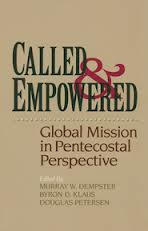 Called & Empowered is a collection of essays that addresses a number of critical post-modern issues. The main purpose of the book is to introduce and answer problematic questions related to church and culture. A great addition is the compilation of in-depth cultural studies and recent theological developments viewed in Christian context. What made the book interesting for me personally was the presence of a number of well-balanced critical perspectives which were presented from different viewpoints. Because they were combined with different cultural factors, they were helpful in understanding the Global Mission of Pentecostalism. The supportive evidence focused on the Kingdom, culture, social formation and unity.
Called & Empowered is a collection of essays that addresses a number of critical post-modern issues. The main purpose of the book is to introduce and answer problematic questions related to church and culture. A great addition is the compilation of in-depth cultural studies and recent theological developments viewed in Christian context. What made the book interesting for me personally was the presence of a number of well-balanced critical perspectives which were presented from different viewpoints. Because they were combined with different cultural factors, they were helpful in understanding the Global Mission of Pentecostalism. The supportive evidence focused on the Kingdom, culture, social formation and unity.
On the Kingdom of God
During the latter part of the twentieth century, the doctrine of the Kingdom of God was of great concern for many theologians and missiologists. In my short educational experience, I have been introduced to a number of works on the subject, some of which were quite controversial. However, it has been interesting to read about the Kingdom strategy of Jesus, along with the development of the Kingdom theology in the context of third world praxis. It seems that in both cases, it is reasonable to accept the fact that since the Kingdom of God was a prime concern in the ministry of Jesus, as well as in the ministry of John the Baptist and the apostles, it should carry the same importance in our Christian life and activities. Unfortunately, this may not be the observed reality in Christianity today. However, traditionally and historically, Pentecostal Christians have always focused on the Kingdom of God. A very particular example in this case is the already-not-yet proposal, which is directly associated with Kingdom theology.
On Gospel and Culture
This particular division in Called and Empowered has a very important discussion on the urbanization of the Pentecostal mission. Historically, Pentecostal revivals do not begin in huge urban centers and do not focus or attract them. It seems that such revivals occur mainly among people who are neither highly educated, nor economically prosperous. Also they do not occupy a high rank in the social hierarchy. It is only after they have had a period of successful existence as aggressively growing religious organizations that the Pentecostal Churches and ministries start aiming at the great cultural, economical and political urban centers. Such progressive development is evident in the Bible. Undeniably, the first move of the Holy Spirit in Acts 2 was among uneducated people such as fishermen and tax collectors. Similar concern was expressed by Gentiles present in Jerusalem on the day of Pentecost. Nevertheless, shortly thereafter the Gospel was preached before kings, politicians, governors and military leaders. Therefore, what Pentecostalism rediscovers today is not a new blending of culture and Gospel, but rather a reclamation of the continuity of historical inheritance.
On Pentecostal Response to Marxism
A very good point was made by Dr. Kuzmic in his exposition on Marxism in relation to the existence of Pentecostalism. It is always quite disturbing when a parallel between Marx’s socialism and Christianity is being made. In Eastern Europe however, this idea is not as neoteric as proposed by some Western writers. In the early twentieth century Nikolay Berdyaev, one of the most prominent socialist writers, introduced what is considered probably the first comparison between Christianity and Marxism. The similarities are many: common wealth, economical and social balance, peace, brotherhood, ect. Also, communism in many ways imitates Christianity. Good examples are the establishment of the social and economical infrastructure of cultural communes, work unions and agricultural cooperatives which have common assets. A similar example is the almost “religious” dedication required by the Communist Party.
What is missed, however, is the simple fact that Marxism, different from Christianity, lacks God. As Dr. Kuzmic points out, Marx hated all gods, including Christ. Therefore, there is no room for comparison. If Communism is Christianity without Christ, it then stands far away from the whole idea of the existence of Christianity. This was shown through the enormous failure of communism in Eastern Europe. Since Dr. Kuzmic has personally experienced all of the above, his exposition on Marxism in relation to Pentecostalism assesses the true danger of such a parallel.
On Ecumenism and Pentecostal Mission
The last evidence is drawn from the discussion on Ecumenical Mission offered in Called & Empowered and my long-term relationship with the World Council of Churches. The World Council of Churches is one of the numerous organizations which promote worldwide Christian unity through reconciliation, theological dialogue, sharing of resources and the vision of a community life rooted in a particular cultural context.
The vision of the World Council of Churches is based on the common Christian mission of introducing Christ and Christianity to the world. I am persuaded that the future of World Missions is for Christians uniting with a common purpose for our Christian mission. Undoubtedly, such process will take time and mutual efforts. I am reminded of this as I observe my home country, Bulgaria where Protestant Christians are divided against one another and unity is lacking. Unified missions will not only bring oneness and harmony back into the church, but it will formulate the ecclesiastical community after the image of the Early Church from the Book of Acts. The results from such a unified mission will not only be world changing, but self-changing as well.
Mission Applications
The following part of this overview will include a mission application response to the evidences listed above. As it focuses on the Eastern European context, it will further suggest mission applications in the present Protestant reality in the region, and more specifically among the Bulgarian Pentecostals. The above four evidence accents were chosen among others because they all pertain to today’s Bulgarian Protestant reality. The kingdom of God as both present reality and eschatological hope takes a bit different perspective in a society where forty five years of Communist regime has left a deep scar on people’s mentality. Healing for the emotional and social wounds has not been provided by rapidly changing governments and political models, crime has increased, severe economical crises have occupied and there remains a constant fear and lack of hope for the future. In such context, the Kingdom of God is much more than a present reality or a future hope. It is all that the Protestant church in Bulgaria really has.
Gospel and culture are an essential part of Bulgarian missions work. On the Balkan Peninsula where Bulgaria is located, there are more than 150 languages and dialects spoken. Adding the crossroads of three world religions, three continents and constant migration of people that has been going on for thousands of years, makes this Europe’s melting pot of cultures and ethnoses. Discovering a paradigm which will serve as a buffer between the ever-changing Balkan culture and the eternal Gospel will be the ever-present factor that determines the success of Protestantism on the Balkans.
In Eastern European cultural and social context, the mentioning of Communism indeed has a different meaning. The Pentecostal church in Bulgaria historically and ideologically has opposed Communism in every form, and thus Pentecostal Christianity in Bulgaria must differentiate from Communism in order to remain in its historical distinctives. In order to be successful in its mission and message, and at the same time remain within its original identity, the Bulgarian Protestant movement must continue to oppose Communism in all of its forms.
The final evidence of ecumenism must be understood in Eastern European settings not only as an ecumenical cooperation of different religious formations, but as a union between all existing Protestant groups. As costly as such idea may seem, it will strengthen Eastern European Protestantism. Historically, in Bulgaria an organization called Bulgarian Evangelical Alliance (United Evangelical Churches) has served such purpose by preserving the identity of the denominations members. Such unity of cooperation must continue in even more strategic and planned ways in order to provide Bulgarians with the proper social context for national Protestant reformation and revival.
Mission Bulgaria 2005-2012 Completed
 We are currently finalizing our Mission Bulgaria project through a seven-year long commitment, which has touched the lives and ministries of over 250 local churches in the country of Bulgaria. Along with these congregations, our international ministry team has worked with the Bulgarian Diaspora churches in the United Kingdom, Cyprus, Spain, Germany and France. Six Bulgarian churches are currently operating in Cyprus and four in the U.K., as there are projections for the registration of other Bulgarian churches as well. It has been a journey worth taking.
We are currently finalizing our Mission Bulgaria project through a seven-year long commitment, which has touched the lives and ministries of over 250 local churches in the country of Bulgaria. Along with these congregations, our international ministry team has worked with the Bulgarian Diaspora churches in the United Kingdom, Cyprus, Spain, Germany and France. Six Bulgarian churches are currently operating in Cyprus and four in the U.K., as there are projections for the registration of other Bulgarian churches as well. It has been a journey worth taking.
In relation to our ministry work in Bulgaria in the period of 2005-2012, among many others we’ve completed these seven milestones:
1. The publication of a complete revision of the Bulgarian Bible
2. Completing a new literal translation of the Bulgarian New Testament from the original Greek including the four gospels, acts, epistles, and the apocalypse
3. Establishment of the Bulgarian Chaplaincy Association with the special recognition of the US Department of State
4. Foundation of the Masters of Chaplaincy Ministry Program for Eastern Europe
5. Our national X event for youth every summer since 2005, which is accompanied with a Bible Camp for young ministers and a national mobile educational strategy
6. Building a broadcasting network which supports LIVE streaming of services and events for over 20 Bulgarian congregations every week
7. Implemented a long-term church planting proposal for establishing Bulgarian ethnic congregations outside of Bulgaria
After completing 7 years of ministry in Bulgaria, we are publishing a detailed overview of our work and results in a soon to be published monograph called simply Confessions. This new book speaks of the lessons we’ve learned in the ministry and issues of church and politics within the religious life of the country we’ve struggled to resolve. It addresses:
- The separation of church and politics of false religiosity
- Entering an organic relationship with God
- Depending fully in the ministry of the Holy Spirit
- Renvisioning the reality of the Kingdom
- Raising a new Pentecostal generation
- Reliving His glory
- Leaving a legacy worth remembering
As we are celebrating our 7-year long accomplishment of Mission Bulgaria, we are reminded that in 2013 God is doing a new thing.
MISSIONS TEST 1: Mission, Method & Message
Dony K. Donev, Cup & Cross Ministries International
The following World Missions Series were sparked by a partial sign with the words “Missions Check,” we saw in Atlanta on our way to a mission’s trip to Europe just a weeks after the great tornado of 2011. We’ve observed the events that followed for over a year now, thus launching these series with a purpose. After serving in various ministry positions around the globe as a part of the Church of God for over 20 years, we have built a solid platform as a response to current problems and issues on the mission filed. In the past seven years alone, our ministry team has survived several consecutive denominational splits, and coming on the other side still preaching Jesus Christ and Him risen, this is what we have to state…

A people is a group owning a vision. Vision is what we do today in order to have a better tomorrow. Mission is the things we do to accomplish the vision. And if mission without a vision is blind, mission without a message is blind without a tongue. It feels and it hears, but it can never fully perceive and speak to be heard.
A mission is distinct by the method via which it brings its message. These three are ultimately and intrinsically connected. If mission is what we do, method is how we do it, then message is what we want people to know after we have done it…
But the method of bringing the message quite often changes the message itself. Thus changing, adapting and altering the ministry method must be done with careful consideration of the long-term shift they create not merely in our mission, but on our own Pentecostal identity as well. While adjustments may be needed in missions as the world around us changes, the message must remain the same at all cost. For who is the source and the ultimate agent of change, except the author of the message – God in whom there is no shadow of change?
A good number of churches in the 21st century are choosing to abandon their mission programs as dysfunctional and obsolete in order to follow a more corporate-based model of becoming mission-sending agencies and/or partners with such. While this may be financially and structurally beneficial, such paradigm cannot work for any Pentecostal church with local or global representation without changing forever its corporate identity.
At the same time, there is no need to restart or reset missions, for Mission Dei is not a circular, seasonal or repetitive process in human history. It is solemnly based on the ultimate, one-time event of the crucifixion and resurrection of Jesus Christ, the Son of God. This salvific monument on the stage of eternity neither needs, nor will it ever repeat and recycle itself again into history. And it most certainly does not need our human participation to be reset into a new century. The only restarting that is ever needed is our own resubmission at the old rugged cross on Calvary.
Changing our missional structure to fit, the ever-changing world we live in, is a reaction, generally done post-factum if not too late. And any reaction is simply not leading, but following. Which bids the question, is the church leading in this world or is our mission being reduced to the needs of the current social system. For the Bible still calls us to be not conformed to this world, but transformed by the mind of Christ. To be not merely a culturally relevant church, but a Bible-based alternative culture in a sinful world.
The lesson of the contemporary and culturally relevant church should have been learned centuries ago by Byzantine Orthodoxy. For it is not the change of the world that affects the outcome of ministry, but the change of the church by transformation within. And it is there that the preservation of our cross-fixed, blood-washed, and power resurrected identity must remain constant and unchanging. Thus, we find simply irrelevant, any call for a culturally relevant church, which causes the change or yet even the loss of the message of eternal salvation.
Related articles:
Missions Test 2: Means, Motive & Opportunity (2012)
MISSIONS TEST 3: Missionary Testament (2012)
MissionSHIFT (Part 1): Paradoxes in Missions (2011)
MissionSHIFT (Part 2): Free Will Missions (2011)
MissionSHIFT (Part 3): WebMissions – The Good, The Bad and The Ugly (2011)
M3: Missions for the Third Millennium – A Public Position (2010)
8 Simple Rules for Doing Missions in the Spirit (2009)
Church of God Eastern Europe Missions: Leadership, Economics and Culture (2009)
Read also: Why I decided to publish Pentecostal Primitivism?
Mission Conference at York
Mission Service at Covenant of Faith
Mission Service at the Vineyard Church of God
Mission Bulgaria 2009
Bible School and Services at the Mission Church in Sofia
We are just returning from a powerful weekend of teaching in Sofia. With temperatures below zero and snow covering the larger part of Bulgaria, we travelled to the capital city to minister at the Mission Church there. The church is only a couple of years old, but we have worked with the pastor and the leadership team for over a decade now as part of our Church of God ministry and the Bulgarian Chaplaincy Association as well.
Since April, 2009 the Mission Church has had services in the heart of the Sofia metropolitan of some 2.5 million people living in it. The church started with a handful of folks and now has some 120 members in their regular meetings, a Bible school, home group program, arts program and a very powerful praise team and choir that have held several successful concerts already.
Our visit was connected with a series of lectures on New Testament interpretation at their Bible school and ministering in their Sunday service. Although the school has only 30 students, we felt a powerful presence during the lectures and were able to extend the material and connect on a more personal level with the students. Naturally, the Sunday service became a great continuation of what we had already completed with the students. During the first song of worship, a demon possessed man ran to the altars screaming and rolled on the ground, only to be delivered a few minutes later. Then, the preaching took the attention of the people in the congregation, followed by an alter service in which many rededicated their lives praying to God to bring them to a new spiritual level in their Christian walk. Along with the pastor and his family, we were blessed to observe the Word working within the people and changing their lives forever.
School of Mission: Missions Week in Bulgaria
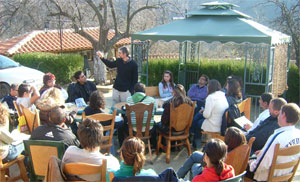 School is in Session: Young Leaders Ministry Retreat with Special Focus on Missions
School is in Session: Young Leaders Ministry Retreat with Special Focus on Missions
It is Missions week in Bulgaria following Thanksgiving. A time to meet with Bulgarian missionaries who travel abroad, discuss their needs and pray for the success of their respective ministries. Our Thanksgiving weekend involved a ministry team retreat in the Balkan Mountains as part of the education program initiated several months ago by our Bible School initiative for the Bulgarian Church of God. As usual, this event was dedicated to training young ministers and their teams and this time the focus of our meeting was missions. Ministry teams represented the Plovdiv, Yambol and Sliven regions. A missionary from Spain was also present for the training.
Keynote speaker of the event was the president of the Bulgarian Missionary Network (BMN), Rev. Ivo Shatrovsky, who shared his calling from God for missions and a personal vision for Bulgarian missions abroad. In his address, he presented several valuable lessons he has learned in his own missionary experience in the West Indies. Two workshops on the topics of Conflict Resolution and Structuring for Growth were further presented by our team. And while various activities were taking place in the midst of extensive discussions, sharing on the part of the missionaries and strategic planning for the future of the represented regions, the time of fellowship turned to a prayerful reflection on God’s calling upon our own lives.
For the mission of the church cannot exist apart from God. It is a calling, not merely a career. It is a cost, not simply a concern. It is a burden, not just a belief. Its focus is care and compassion. And yes, even in the 21st century, it still remains a Holy Ghost uttering, through which one remains blind for the world around until obeying to the vision of heaven (Acts 26:19) and begins seeing the world through the eyes of the Savior.


![MissionOfGodSB_post[1]](https://cupandcross.com/wp-content/uploads/2013/07/MissionOfGodSB_post1.jpg)

